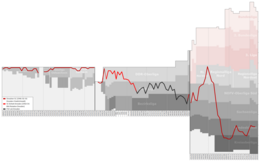 | |||
| Full name | Dresdner Sportclub 1898 e. V. | ||
|---|---|---|---|
| Nickname(s) | The Friedrichstädter (The Friedrichtowners) | ||
| Founded |
| ||
| Ground | Heinz-Steyer-Stadion, Dresden | ||
| Capacity | 5,000 | ||
| Chairman | Günther Rettich | ||
| League | Landesklasse Sachsen-Ost (VII) | ||
| 2021–22 | 6th | ||
| Website | https://dresdner-sc.de/ | ||
Dresdner Sportclub 1898 e.V., known simply as Dresdner SC, is a German multisport club playing in Dresden, Saxony. Founded on 30 April 1898, the club was a founding member of the German Football Association (Deutscher Fussball Bund) in 1900. The origins of the club go back still further to the predecessor side Dresden English Football Club formed in 1874 by expatriate Englishmen as Germany's first football club and possibly the earliest in continental Europe: Dresdener SC was organized by one-time German members of the EFC. [1]

